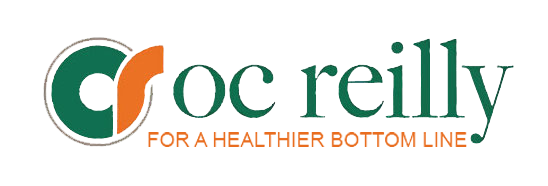By Scott Satkoske, OC Reilly Inc.
(Aug. 14, 2017)—The giant gothic architectural wonder dominates the skyline of Rochester, New York. Once the hub of a globally dominant company, a company whose products were synonymous with the industry it democratized around the world, the old headquarters building today stands as a cautionary white elephant to business leaders everywhere.
Don’t blink. Even when – maybe especially when – you’re king of the hill, don’t blink. Competitors are gaining on you. The fickle tastes of consumers may betray every historical assumption. The basics of what launched you to pre-eminence can shift on a dime. And if you’re not ready, if you’re caught napping, everything you’ve built can fly away like a dead leaf on an autumn wind.
Just ask the Eastman Kodak Company, whose majestic skyscraper stands as a hollowed-out shell of what it had once been. It blinked and missed the paradigm change from film to digital photography.
A story in the May 4 edition of Supply Chain Management Review highlights the mistakes made at Kodak, along with IBM, which had initially assumed incorrectly that hardware, not software, was the key to the personal computing market.
“Today this is happening in the auto market, which is witnessing a potentially dramatic shift in the focus of value creation away from global OEMs such as Ford, GM, Honda, Toyota, and Volkswagen, and toward companies that are supplying technology for self-driving, connected, and electrified vehicles,” the article reads. “One pundit characterized this competition as the race to create ‘servers on wheels,’ as computing takes precedence over the transportation function.”
As we serve clients in the health care supply chain field, the changes that have swept through this industry over the past five years only promise to continue, even accelerate in the years to come. When evaluating and deciding on equipment, contractual relationships, supplies, and any other product or service serving health care providers, an appreciation of and a respect for rapid change can only be a positive strategy.
Assumptions never hold. What worked yesterday has no guarantee of doing the same tomorrow. The world always leans toward growth, newness, innovation, and change. In supply chain matters, as in any other part of running a successful business long-term, it all leads to a simple idea.
Don’t blink.
Copyright 2017 OC Reilly Inc.
